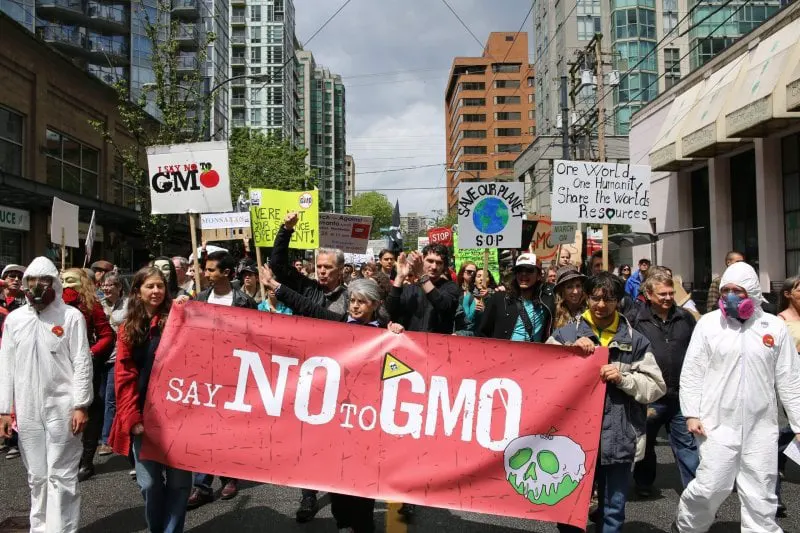Neophobia: The psychological barrier that inspires knee-jerk rejection of GMOs and other food technology
Neophobia: The psychological barrier that inspires knee-jerk rejection of GMOs and other food technology


Psychologist Michael Siegrist and nutrition scientist Christina Hartmann have compiled research on the psychological and societal factors that influence consumer acceptance of food technologies. According to a 2015 survey of more than 30,000 consumers, the most desirable food attributes are ‘freshness’, ‘naturalness’ and ‘minimal processing’… ‘Many consumers perceive the use of food technologies as contradictory to healthy, nutritious food, which may be a challenge for the industry,’ says Siegrist.
When scaled up, lab-grown meat may offer a more sustainable and animal-friendly alternative to livestock rearing. But, once again, a 2018 survey showed that the public isn’t quite ready for it. Survey respondents had a low understanding of the technology and a low level of acceptance. When the production process was explained to them, it actually reinforced the acceptance of traditionally reared meat.
‘Cultured meat evokes a “disgust” response in many people because it’s perceived as artificial,’ says Siegrist. He adds that evolutionary psychology might help to explain this. ‘Instead of relying only on our immune system to fight infections in our body, our behavioural immune system has evolved to evoke a feeling of disgust or a “neophobic response” to unknown foods that may have harmed us in the past. The very same behavioural constructs may be impacting people’s willingness to accept novel food technologies in the modern day.’
Read the original post

 | Videos | More... |

Video: Nuclear energy will destroy us? Global warming is an existential threat? Chemicals are massacring bees? Donate to the Green Industrial Complex!
 | Bees & Pollinators | More... |

GLP podcast: Science journalism is a mess. Here’s how to fix it

Mosquito massacre: Can we safely tackle malaria with a CRISPR gene drive?

Are we facing an ‘Insect Apocalypse’ caused by ‘intensive, industrial’ farming and agricultural chemicals? The media say yes; Science says ‘no’
 | Infographics | More... |

Infographic: Global regulatory and health research agencies on whether glyphosate causes cancer
 | GMO FAQs | More... |

Why is there controversy over GMO foods but not GMO drugs?

How are GMOs labeled around the world?

How does genetic engineering differ from conventional breeding?
 | GLP Profiles | More... |

Alex Jones: Right-wing conspiracy theorist stokes fear of GMOs, pesticides to sell ‘health supplements’




 Trust issues: What happens when therapists use ChatGPT?
Trust issues: What happens when therapists use ChatGPT? California, Washington, Oregon forge immunization alliance to safeguard vaccine access against federal undermining
California, Washington, Oregon forge immunization alliance to safeguard vaccine access against federal undermining Fighting deforestation with CO2: Biotechnology breakthrough creates sustainable palm oil alternative for cosmetics
Fighting deforestation with CO2: Biotechnology breakthrough creates sustainable palm oil alternative for cosmetics Viewpoint — Fact checking MAHA mythmakers: How wellness influencers and RFK, Jr. undermine American science and health
Viewpoint — Fact checking MAHA mythmakers: How wellness influencers and RFK, Jr. undermine American science and health 30-year-old tomato line shows genetic resistance to devastating virus
30-year-old tomato line shows genetic resistance to devastating virus The free-range chicken dilemma: Better for birds, but with substantial costs
The free-range chicken dilemma: Better for birds, but with substantial costs Viewpoint: Video — Big Solar is gobbling up productive agricultural land and hurting farmers yet providing little energy or sustainabilty gains
Viewpoint: Video — Big Solar is gobbling up productive agricultural land and hurting farmers yet providing little energy or sustainabilty gains ‘You have to treat the brain first’:Rethinking chronic pain with Sanjay Gupta
‘You have to treat the brain first’:Rethinking chronic pain with Sanjay Gupta
